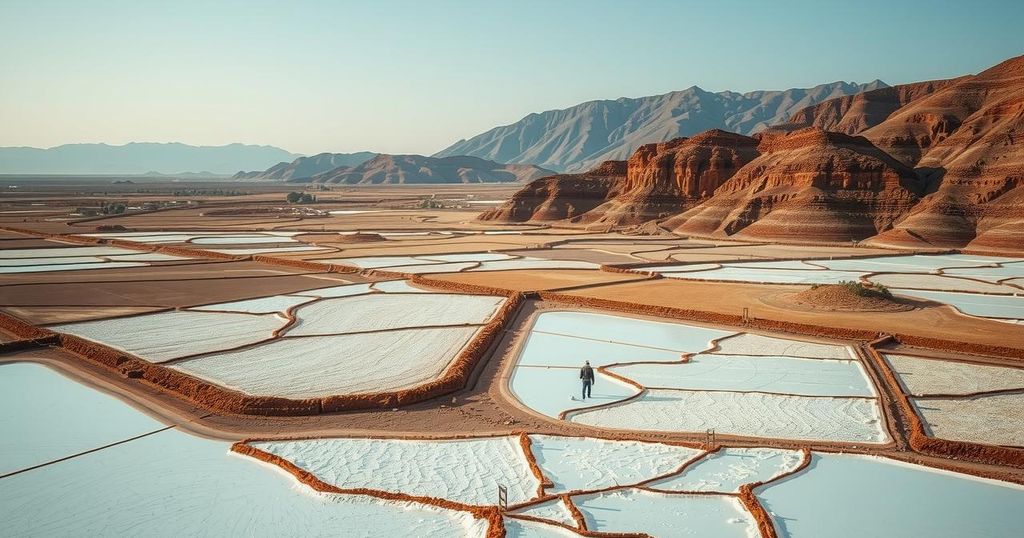Nations Address Growing Threat of Land Aridification in Recent Talks

A recent U.N. report at the summit in Riyadh reveals that over three-quarters of Earth’s land is experiencing drying conditions due to climate change, deforestation, and water shortages. If trends continue, nearly five billion people will face severe water shortages by century’s end. Nations are discussing strategies for drought preparation and mitigation funding, emphasizing the need for international cooperation.
The increasing aridification of Earth’s lands presents a grave challenge for global ecosystems and human settlements. This alarming trend was underscored in a recent United Nations report unveiled during the U.N. summit in Riyadh, Saudi Arabia, aimed at mitigating desertification—land that once supported life is rapidly becoming barren as a consequence of climate change, decreased water availability, and deforestation. The report exposes that from 1970 to 2020, over three-fourths of the world’s land has undergone more severe drying conditions than those observed in the preceding thirty years, indicating a shift in climate dynamics that is irreversible.
Negotiations at the summit have focused on immediate strategies to counteract the increasing severity and frequency of droughts, which affect access to essential resources like water. Experts warn that if current warming trends persist, up to five billion individuals will face drying conditions by century’s end, significantly disrupting agriculture and food security and prompting migration. Moreover, the report highlights that drier climates substantially threaten livestock farming and, consequently, food supplies for populations worldwide.
The discussions in Riyadh also acknowledge the importance of financial backing for drought preparedness, with commitments from Saudi Arabia and the Arab Coordination Group to facilitate multilayered responses to impending water crises. Nevertheless, a viable framework for international cooperation remains contentious, particularly concerning the funding responsibilities of wealthier nations towards those most affected by desertification. Recommendations from the report advocate not only for enhanced water conservation techniques and improved agricultural practices but also for collaborative efforts that transcend national borders—reflecting an urgent need for cohesive international action to combat this pressing issue.
The drying of Earth’s land surfaces represents a significant environmental crisis, driven by human-induced climate change, deforestation, and unsustainable land management practices. The U.N. Convention to Combat Desertification provides a global framework for nations to address these challenges, with the recent report underscoring the critical need for immediate action. The report conveys that the degradation of formerly fertile areas into deserts threatens biodiversity, food security, and the livelihoods of millions, thus warranting urgent discussions and comprehensive strategies to mitigate the impacts of prolonged drought and land degradation on the global population.
The findings of the U.N. report underscore the urgency of addressing land aridification, which poses severe risks to human life and ecological systems. Strategies discussed at the Riyadh summit indicate a collective awareness among nations about the need for enhanced drought preparedness, collaborative land management practices, and financial commitments, particularly from affluent countries. Ultimately, enduring solutions will depend on the international community’s ability to work in concert to implement adaptive measures and alleviate the looming crises associated with desertification.
Original Source: apnews.com





